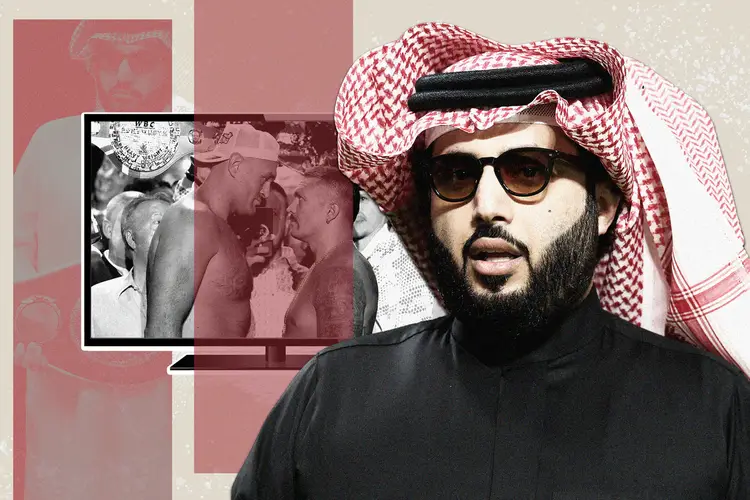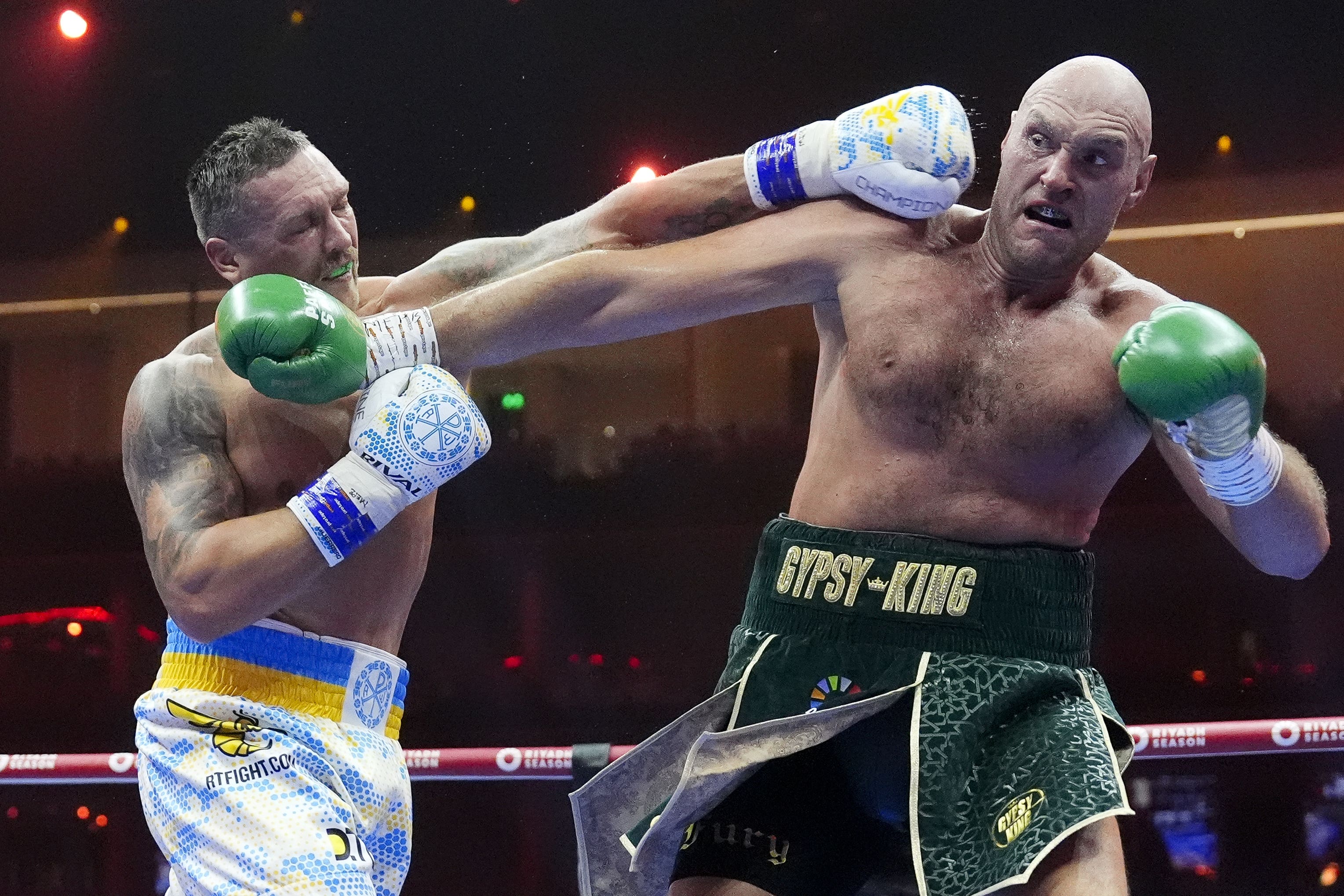Saudi Arabia’s next bold move to revolutionise boxing

Join Our Free Sports Newsletter For Latest Updates!
Join Our Free Sports Newsletter For Updates!
Subscribe To Our Free Sports Newsletter!
I would like to receive emails regarding special offers, events, and updates from The Independent. Please take a look at our privacy policy.

For a long time, one of the biggest frustrations in boxing was the sport's failure to deliver its most anticipated matchups. Most of the time, the fighters themselves weren't at fault; it was the managers, promoters, and governing bodies who contributed to the problem. Each of these groups had their own interests. Managers and promoters aimed to get their boxers and themselves the best payouts while minimizing the risks during fights. At the same time, governing bodies often prioritized mandatory title defenses over the clashes that fans were eager to watch. Additionally, television networks contributed to the complicated and challenging dynamics within boxing.
Boxers who are under contract with a promoter are also effectively tied to the promoter's broadcasting partner. This connection puts pressure on promoters to deliver solid opportunities for their fighters. By keeping potential competitors at bay, broadcasters can ensure that their star athletes remain exclusive to them and consistently take the lead in fights. This approach has been the norm up until 2023.
This isn't to say that all the problems have been solved, but Saudi Arabia’s involvement in boxing has been a game changer. While there are valid concerns about sportswashing, the influx of money from Saudi Arabia has made it possible to organize match-ups that fans had been waiting for. Notable fights include Tyson Fury facing Oleksandr Usyk for the undisputed heavyweight title—the first of its kind in 25 years—and the upcoming rematch, along with Saturday’s thrilling showdown between Artur Beterbiev and Dmitry Bivol for the undisputed light-heavyweight championship.

In addition to enhancing the matchmaking process, Saudi Arabia's boxing revolution has also influenced broadcasting agreements. This shift has worked out positively for the audience.
At first, it seemed that DAZN would be the sole broadcasting partner for events in Saudi Arabia. Although DAZN did finalize a multi-year agreement with Riyadh Season this week, many of the significant pay-per-view events from the past year were also shown on Sky Sports and TNT Sports in the UK, in addition to ESPN+ in the US.
Not only have the most anticipated matches come to life, but they've also become easier for fans to access. You don't need to have every possible subscription to catch these events, nor do you have to struggle with a remote on an unfamiliar platform. If you prefer DAZN, you can continue to use it without any hassle, and the same goes for other services.
So far, the pricing has been quite reasonable in the UK. For the first fight between Fury and Usyk in May, DAZN subscribers had to pay £23.99, while Sky customers were charged £24.95 and TNT viewers paid £24.99. However, as mentioned earlier, most viewers still need a subscription, which has been a longstanding issue with the pay-per-view model. DAZN entered the boxing arena in 2018 with a commitment to being subscription-based, but eventually transitioned to a typical pay-per-view format.
How about prices in the US? For a long time, they've been much higher than those in the UK. For instance, the first Fury vs Usyk matchup was listed at $69.99 on ESPN+ and DAZN in the US. This disparity has motivated Turki Al-Sheikh, who heads the Saudi boxing initiative, to advocate for more affordable prices in North America.

Talksport has revealed that 20 million people watched Fury vs Usyk 1 through illegal streaming, which led to an estimated £95 million in lost earnings for the companies that hold the TV rights. Among these viewers, it's reported that 18% were streaming illegally from the UK, while 25% were doing so from North America.
In early September, Al-Sheikh spoke to Talksport and noted, "I've been thinking about the upcoming PPV and see it as my next major match. I would really appreciate your input on this. My goal is to create a PPV with a reasonable price that makes fans excited, encouraging them to subscribe and watch it through legitimate means. When PPV prices are too high, many people resort to watching the fight illegally, which isn’t good for boxing or the industry as a whole."
"My goal is to make our Riyadh Season events affordable, aiming for ticket prices below £20 in the UK and under $20 globally. I'd rather have a million fans subscribe and pay £20 for pay-per-view than have fewer than 500,000 people paying £40. When prices are too high, people tend to find illegal ways to watch. This approach isn't sustainable for growing the sport. By offering fans exciting matches at reasonable prices, I believe we can expand our audience."
A couple of weeks later, Anthony Joshua's shocking defeat to Daniel Dubois was available for £19.99 in the UK and $19.99 in the US. The upcoming fight between Beterbiev and Bivol will have the same price on DAZN in both countries. However, there's a bit of confusion with ESPN+: subscribers can watch the main event without paying an additional PPV fee, but they will need to pay $14.99 for the undercard.
As anticipated, Al-Sheikh’s attempts to develop more affordable pay-per-views are likely to be anything but simple. However, since he announced his goals, the advancements have been remarkable, unfolding at a pace typically linked with initiatives from Saudi Arabia.
Saudi funding often helps to pave the way for achieving various objectives, and it appears to be doing the same for the previously complicated world of televised boxing. However, this doesn’t mean that fans should blindly accept this new development without being aware of the underlying issues. As Saudi Arabia leverages boxing to enhance its image, especially in light of ongoing concerns regarding its human rights practices, the lower pay-per-view prices could come with other implications that viewers should consider.





















































